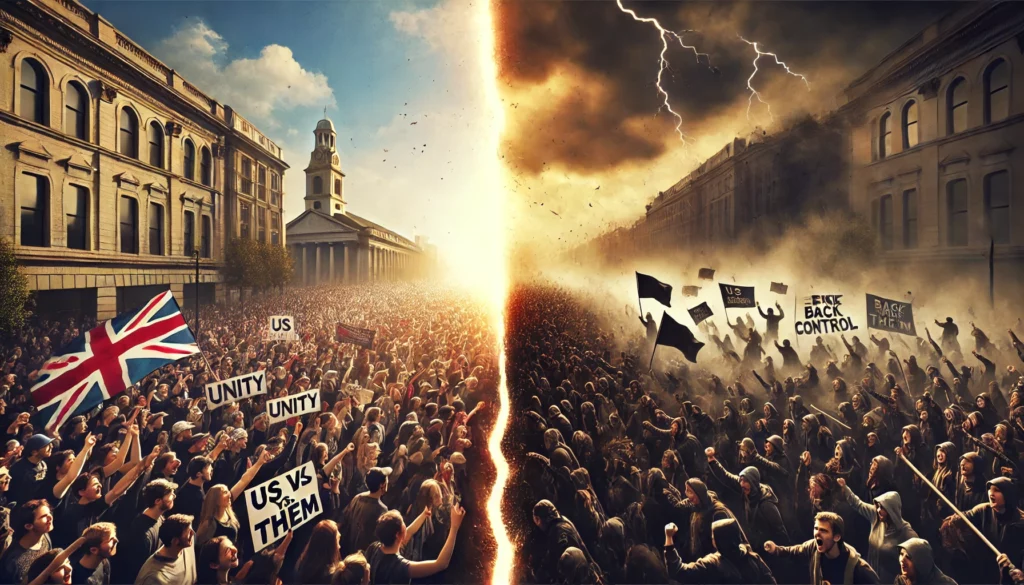The Role of Political Rhetoric
Political rhetoric, the art of persuasive communication used by politicians, plays a crucial role in shaping the political landscape. It influences how people perceive issues, leaders, and policies, ultimately guiding public opinion and the direction of a nation. The power of language in politics cannot be overstated; it is a tool that can inspire change or, conversely, manipulate and divide.
- August 31, 2024
- 9:00 pm
The Dance: Words and Power
In the theater of politics, rhetoric is the lifeblood, a force that shapes destinies and bends the arc of history. Language is not merely a tool; it is the very essence of power—capable of stirring the soul, igniting revolutions, or, with equal ease, sowing division and discord. Political rhetoric, when wielded with intent, becomes the hand that writes the script of our shared reality.

Echoes of the Past
History is a witness to the power of words. Consider Abraham Lincoln, whose eloquence during the darkest days of the Civil War was not just speech—it was salvation. The Gettysburg Address, with its brevity and depth, redefined the struggle as one for human dignity, weaving the Union’s cause into the fabric of equality and freedom. Lincoln’s words did not merely describe a war; they transformed it, galvanizing a nation to fight on for a greater purpose.
Yet, this same power of rhetoric has also been twisted to darker ends. In the 20th century, the Nazi regime mastered the dark art of propaganda, using rhetoric to dehumanize and destroy. Words, once a beacon of truth, became tools of terror, convincing ordinary citizens to partake in the unimaginable. Here, rhetoric was not the architect of hope but the harbinger of horror.
The Sword of Speech
Rhetoric is a double-edged sword. In the hands of a leader like Martin Luther King Jr., it became a force for justice, an anthem of equality that resonated through the ages. His “I Have a Dream” speech wasn’t just words; it was a movement, a call to the conscience of a nation, urging it to live up to its highest ideals.
But rhetoric can also be wielded to divide. Today, we see how populist leaders across the globe use language to fracture societies, constructing narratives of “us versus them.” This rhetoric, laced with fear and resentment, erodes the foundations of democracy, turning citizens against one another and undermining the very institutions that bind us together.
The Psychology of Persuasion
Words are more than sounds; they are the architects of our beliefs and behaviors. Political rhetoric taps into our deepest emotions—fear, hope, pride—and frames our understanding of the world. Consider the power of a phrase like “tax relief.” It subtly frames taxes as a burden, a weight to be lifted, shifting public opinion in favor of cuts, regardless of the consequences for public services.
Rhetoric works on the subconscious, shaping our perceptions long before we consciously engage with its meaning. It can inspire us to act with courage, or drive us to make decisions out of fear, bypassing reason in favor of raw emotion.
The Amplifying Echo Chamber
In our digital age, the echo of rhetoric is amplified by the megaphone of social media. Platforms like Twitter and Facebook don’t just share words—they magnify them, quite often distorting reality in the process. Sensational and emotional content thrives, spreading faster than truth, and in this environment, rhetoric becomes a weapon of mass persuasion, for better or worse.
Traditional media, too, plays a role in this amplification. The line between news and entertainment has blurred, and in the quest for ratings, news is often sensationalized, reducing complex issues to sound bites and slogans. The result is a public discourse that is increasingly shaped by oversimplified narratives, leaving little room for nuance or truth.
Rhetoric with Integrity
In a healthy democracy, rhetoric must be grounded in truth and integrity. Leaders have a duty to use their words responsibly, to inform rather than manipulate, to unite rather than divide. Ethical rhetoric should elevate the conversation, fostering a culture of respect and understanding, where ideas can be debated with civility, and where truth is not sacrificed for the sake of power.
As citizens, we must also engage critically with the rhetoric we encounter, questioning its intent and its impact. By doing so, we contribute to a political culture that values dialogue over division and truth over expediency.
Reclaiming the Narrative
The power of rhetoric in shaping our reality is immense, but so too is our ability to reclaim that power for the greater good. By fostering informed, respectful dialogue, we can rebuild the democratic ideals that rhetoric seeks to define. The path forward is challenging, but with vigilance and integrity, we can ensure that the words we choose and the words we hear are ones that build, rather than destroy.
Dive deeper into the world of political rhetoric. Explore our related articles and resources to understand how language shapes our world—and how we can shape it in return. Let your voice be a force for unity and truth in the ongoing narrative of our democracy.